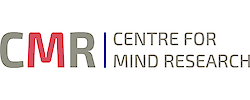Translational Imaging in Psychiatry
Management
Prof. Dr. rer. medic. Axel Krug
Today, psychiatric diagnoses are based on phenomenological characterization of symptoms leading to nosological entities. These categories –though widely accepted – might not be clinically useful and even decades of research have not led to the identification of “points of rarity” between certain disorders. Across disorders, for some time now, there is growing evidence for shared genetic and environmental risk factors on the one hand, and overlaps in course, outcome and phenomenology on the other hand.
This research groups investigates commonalities and specificity of genetic and environmental risk factors on cognition and behavior as well as underlying brain structure and function.
Current research aims to support new possibilities of (neuro-)biologically informed diagnostics and treatment options.
Research focus:
- Effects of biological and environmental factors and their interaction on behavior and its underlying brain structure in transdiagnostic patient samples and healthy subjects
- Commonalities and specificity of risk factors of psychotic and affective disorders
- Neural correlates of psychopathology
- Course of psychotic and affective disorders: Course-brain associations, associations with risk and resilience, cognition, personality etc.
- Association of psychopathology (e.g. formal thought disorder) and cognition (speech, working memory, executive functioning etc.)
Theses projects:
This research group can supply students from the fields of psychology, neuroscience, computer science, mathematics etc. with topics and projects for their MSc, Dr. rer. nat. or Dr. med. thesis.
Current research projects:
DFG: FOR-2107: Neurobiology of affective disorder (http://www.FOR2107.de)
DFG: FOR-2107 Add-On: Neurobiology of the Major Psychoses - Transdiagnostic and longitudinal characterization of schizophrenia and affective disorders
Selected publications
- Krug A et al.: Advanced Paternal Age as a Risk Factor for Neurodevelopmental Disorders: A Translational Study. Mol. Autism 2020; 11:54
- Grasby KL et al.: The genetic architecture of the human cerebral cortex. Science 2020; 367:eaay6690
- Tozzi L et al.: Interactive impact of childhood maltreatment, depression, and age on cortical brain structure: mega-analytic findings from a large multi-site cohort. Psychol. Med. 2020; 50:1020–1031
- Han LKM et al.: Brain aging in major depressive disorder: results from the ENIGMA major depressive disorder working group. Mol. Psychiatry 2020; in press
- Opel N et al.: Cortical surface area alterations shaped by genetic load for neuroticism. Mol. Psychiatry 2018; in press
- Stein F et al.: Factor analyses of multidimensional symptoms in a large group of patients with major depressive disorder, bipolar disorder, schizoaffective disorder and schizophrenia. Schizophr. Res. 2020; 218:38–47
- Lammeyer S et al.: Evidence of brain network aberration in healthy subjects with urban upbringing - A multimodal DTI and VBM study. Schizophr. Res. 2019; 208:133–137
- Krug A et al.: Polygenic risk for schizophrenia affects working memory and its neural correlates in healthy subjects. Schizophr. Res. 2018; 197:315–320

















